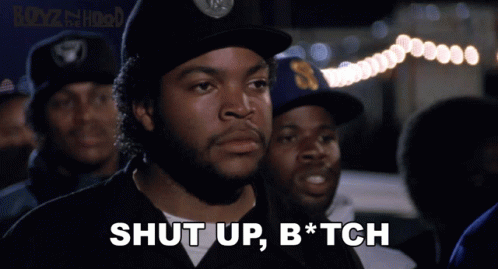No clicks but I was reading about the movie "The Exorcist".
Mannnnnnmn he dismantled that movie to the point it made them terrified cacs look wild goofy.
Though James Baldwin is best known and loved for his novels, essays, and oratory, he is not frequently remembered as a great film critic—though, as Noah Berlatsky wrote in The Atlantic, he should b…

lithub.com
By
Emily Temple
August 2, 2022, 10:13am
Though James Baldwin is best known and loved for his novels, essays, and oratory, he is not frequently remembered as a great film critic—though, as Noah Berlatsky wrote in
The Atlantic, he should be. In 1976, Baldwin published
The Devil Finds Work, a book-length essay about his life watching movies, and about the politics of art in America, and nature of film itself.
In the book’s final section, he has a few things to say about
The Exorcist, which after its 1973 release became the first horror film to be nominated for an Academy Award for Best Picture, and which still frequently tops lists of the all-time best films. Baldwin did not like it. “The film, or its ambience, reminded me of
The Godfather, both being afflicted with the same pious ambiguity,” he writes.
Ambiguity is not quite the word, for the film’s intention is not at all ambiguous; yet, hypocrisy is not quite the word, either, since it suggests a more deliberate and sophisticated level of cunning.
The Exorcist is desperately compulsive, and compulsive, precisely, in the terror of its unbelief. The vast quantities of tomato paste expended in
The Godfather are meant to suggest vast reservoirs of courage, devotion, and nobility, qualities with which the film is not in the least concerned—and which, apart from Brando’s performance, are never present in it. (And, at that, it is probably more accurate to speak of Brando’s
presence, a pride, an agony, an irreducible dignity.)
The Exorcist has absolutely nothing going for it, except Satan, who is certainly the star: I can say only that Satan was never like that when he crossed
my path (for one thing, the evil one never so rudely underestimated me). His concerns were more various, and his methods more subtle.
The Exorcist is not in the least concerned with damnation, an abysm far beyond the confines of its imagination, but with property, with safety, tax shelters, stocks and bonds, rising and falling markets, the continued invulnerability of a certain class of people, and the continued sanctification of a certain history. If
The Exorcist itself believed that history, it could scarcely be reduced to so abject a dependence on special effects.
Baldwin was raised in the Pentecostal faith and was even
a teenage preacher for a few years before leaving the church, so it’s safe to say he was rather more educated about the devil than most people, and was therefore particularly poised to unpack the religious implications of
The Exorcist, as well as the racial undertones—always in that glorious, muscular, exuberant prose. Later on, he writes:
For, I have seen the devil, by day and by night, and have seen him in you and in me: in the eyes of the cop and the sheriff and the deputy, the landlord, the housewife, the football player: in the eyes of some governors, presidents, wardens, in the eyes of some orphans, and in the eyes of my father, and in my mirror. It is that moment when no other human being is real for you, nor are you real for yourself. The devil has no need of any dogma—though he can use them all—nor does he need any historical justification, history being so largely his invention. He does not levitate beds, or fool around with little girls:
we do.
The mindless and hysterical banality of evil presented in
The Exorcist is the most terrifying thing about the film. The Americans should certainly know more about evil than that; if they pretend otherwise, they are lying, and any black man, and not only blacks—many, many others, including white children— can call them on this lie, he who has been treated as the devil recognizes the devil when they meet.
You can read the Baldwin’s full remarks on
The Exorcist here—but the
whole book is very much worth your time.






